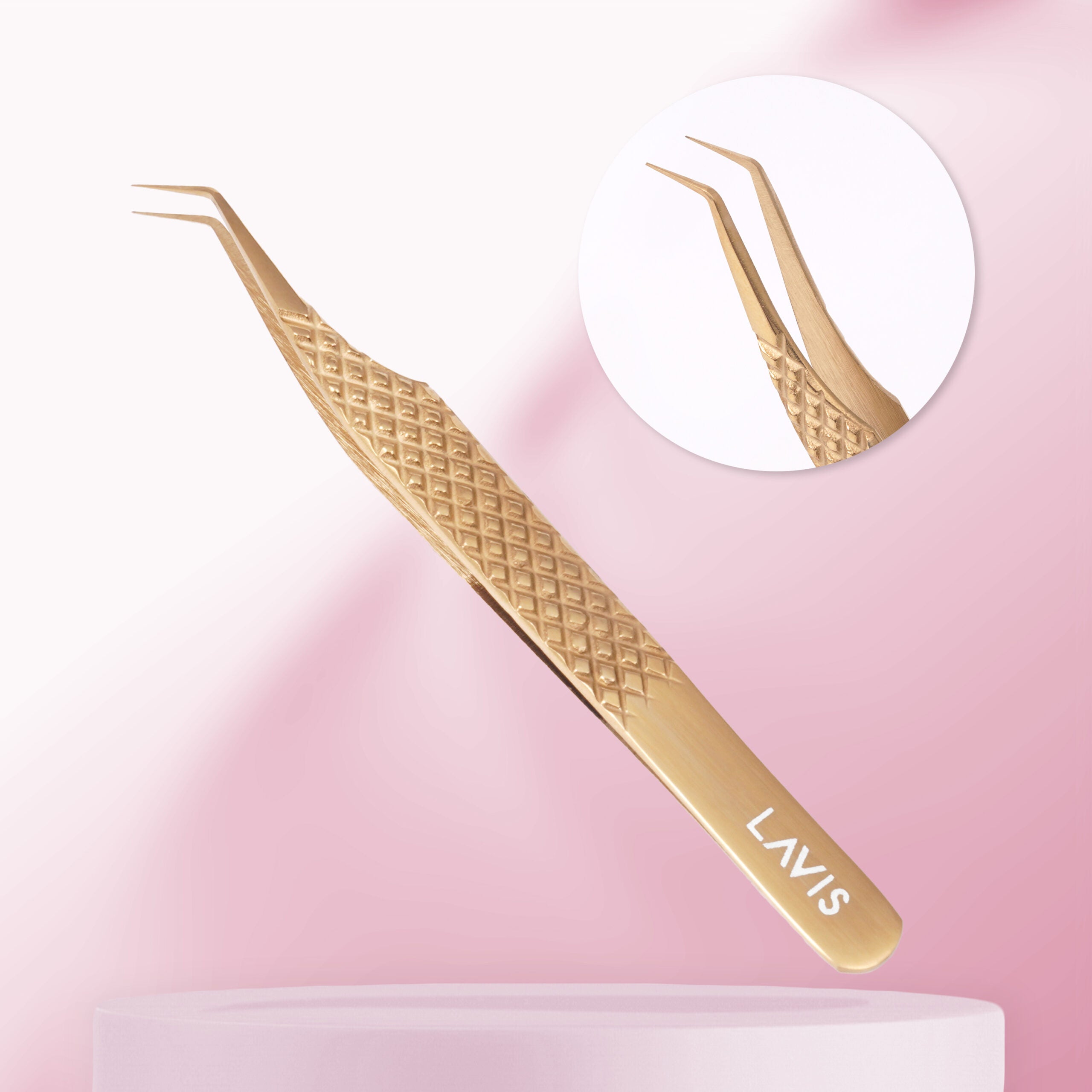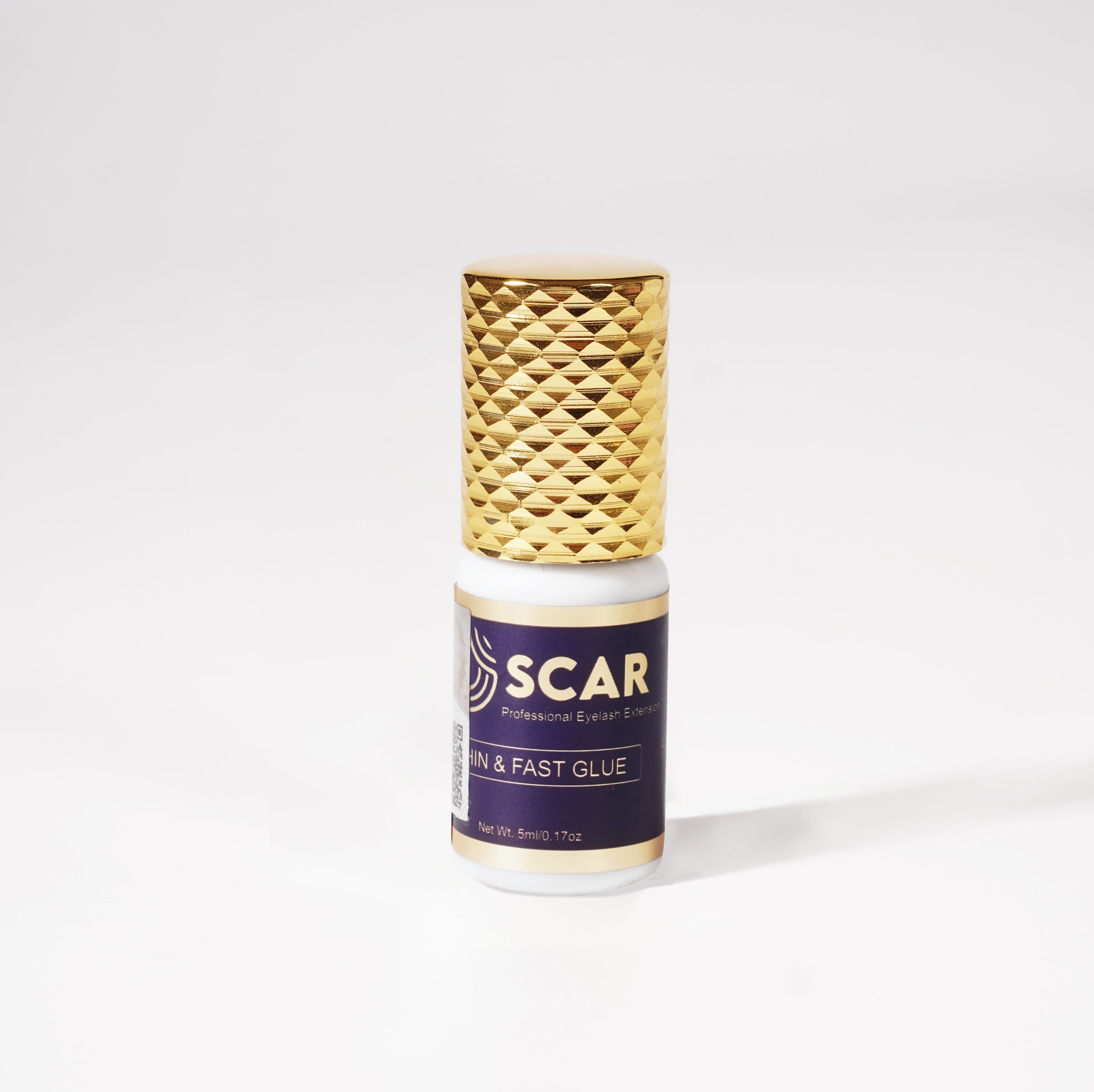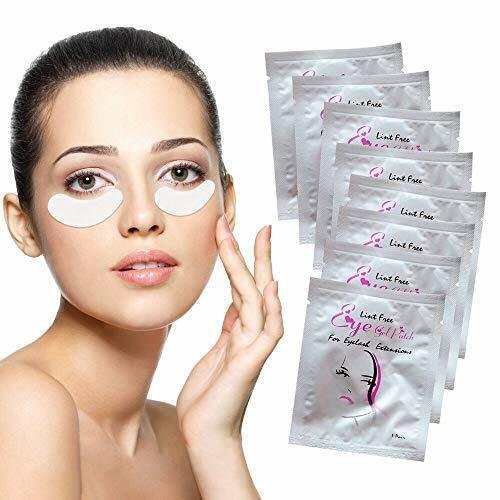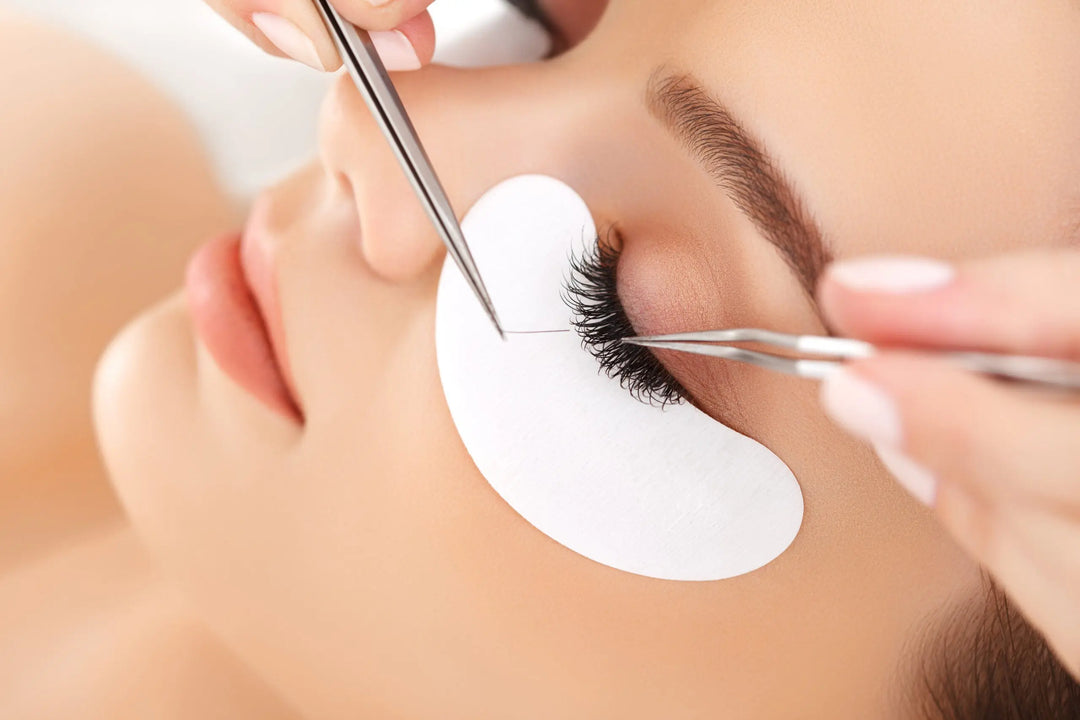Self-Learning Eyelash Extension at Home: A Beginner's Guide
Eyelash extensions have gained immense popularity in the past few years as they possess the remarkable ability to enhance one's natural lashes and deliver a more voluminous and captivating appearance.. While many seek professional help to achieve their desired look, self-learning at home has become a popular option.
 LavisLash classic gold tweezers eyelash extensions
To apply eyelash extensions, you will need several materials and tools, including:
LavisLash classic gold tweezers eyelash extensions
To apply eyelash extensions, you will need several materials and tools, including:
 Eyelash foam cleanser
When dealing with eyelash extensions, it's crucial for individuals to adhere to appropriate safety measures in order to prevent any potential harm or infections. Always work in a clean, sterile environment and use sterilized tools. Wear gloves when applying lashes and avoid touching your face. If you notice any redness, itching, or swelling, it is important to take off the extensions right away and seek medical help.
Eyelash foam cleanser
When dealing with eyelash extensions, it's crucial for individuals to adhere to appropriate safety measures in order to prevent any potential harm or infections. Always work in a clean, sterile environment and use sterilized tools. Wear gloves when applying lashes and avoid touching your face. If you notice any redness, itching, or swelling, it is important to take off the extensions right away and seek medical help.
 Different lash styles can be achieved by varying the length, curl, and thickness of the extensions. Use shorter extensions for a natural look and longer extensions for a more dramatic look. Curled extensions can also provide a more lifted look.
Different lash styles can be achieved by varying the length, curl, and thickness of the extensions. Use shorter extensions for a natural look and longer extensions for a more dramatic look. Curled extensions can also provide a more lifted look.
 Attending workshops and networking events is a great way to learn from industry experts and connect with other professionals in the field.
Attending workshops and networking events is a great way to learn from industry experts and connect with other professionals in the field.
Understanding Eyelash Extensions
Definition and Types of Eyelash Extensions
Eyelash extensions are individual lashes that are applied to natural lashes, enhancing their length and thickness. There are several types of eyelash extensions, including mink, synthetic, and silk. Mink lashes are made from real fur and are known for their natural look and feel. Synthetic lashes are made from plastic fibers and provide a more dramatic look. Silk lashes are a combination of mink and synthetic, giving a softer look than synthetic lashes but still providing more drama than mink.Materials and Tools Used
 LavisLash classic gold tweezers eyelash extensions
LavisLash classic gold tweezers eyelash extensions- Lashes (mink, synthetic, or silk)
- Adhesive
- Tweezers (straight and curved)
- Scissors
- Tape
- Primer
- Cleanser
- Applicator brush
- Eyepads
Safety Precautions and Hygiene Practices
 Eyelash foam cleanser
Eyelash foam cleanserSetting Up Your Workspace
Creating a Clean and Organized Environment
When setting up your workspace for eyelash extension application, it is important to create a clean and organized environment. Make sure your workspace is free of clutter and has adequate lighting. Use disposable or sterilized tools and keep all materials organized and within reach.Essential Tools and Supplies
In addition to the materials and tools listed above, other essential tools and supplies to have on hand include:- Microbrushes
- Jade stone or glue holder
- Air blower
- Fan or air conditioning
Preparing Natural Lashes
Assessing Natural Lashes
Before applying eyelash extensions, it is important to assess the condition of the natural lashes to ensure they are healthy and strong. Look for any signs of damage or weakness, and recommend proper care to maintain lash health.Cleansing and Priming Techniques
Proper cleansing and priming techniques are crucial for successful eyelash extension application. Use a gentle cleanser to remove any dirt or oil from the lashes, followed by a primer to help the adhesive bond better.Proper Isolation and Taping
Isolation and taping techniques are used to ensure each individual lash is properly isolated and easy to work with. Use a tape to hold the lower lashes down, allowing for easier access to the upper lashes.Eyelash Extension Techniques
Introduction to Different Techniques
There are several different eyelash extension techniques, including the classic, hybrid, and volume techniques. The classic technique involves attaching one extension to each natural lash, while the hybrid technique combines classic and volume techniques for a more natural look. The volume technique involves attaching several extensions to each natural lash, providing a more dramatic look.Step-by-Step Application Instructions
When applying eyelash extensions, start by separating the natural lashes with a lash separator tool. Using an applicator brush, carefully apply adhesive to the base of the extension and attach it to the natural lash, keeping the extension at a slight angle. Repeat this process until all desired lashes are covered.Achieving Different Lash Styles
 Different lash styles can be achieved by varying the length, curl, and thickness of the extensions. Use shorter extensions for a natural look and longer extensions for a more dramatic look. Curled extensions can also provide a more lifted look.
Different lash styles can be achieved by varying the length, curl, and thickness of the extensions. Use shorter extensions for a natural look and longer extensions for a more dramatic look. Curled extensions can also provide a more lifted look.
Aftercare and Maintenance
Educating Clients on Aftercare Practices
Aftercare practices are crucial for maintaining the longevity and health of the eyelash extensions. Educate clients on proper cleansing techniques and avoid rubbing or pulling on the lashes. Encourage them to schedule regular touch-ups to maintain the desired look.Recommended Products for Maintenance
There are several products available to help maintain the health of the eyelash extensions, including lash cleansers, conditioners, and growth serums. Recommend these products to clients to help keep their lashes healthy and beautiful.Scheduling Touch-Ups
Regular touch-ups are necessary to maintain the desired look of the eyelash extensions. Schedule regular appointments with clients to ensure their lashes stay in top condition.Troubleshooting and Common Mistakes
Identifying and Addressing Common Issues
Common issues with eyelash extensions include clumping, shedding, and discomfort. Identify these issues and address them with proper care techniques and product recommendations.Correcting and Removing Faulty Extensions
If an extension is applied incorrectly or causes discomfort, it should be removed immediately. Use proper removal techniques and be sure to treat any damaged or weakened natural lashes.Preventing Adhesive-Related Problems
Adhesive-related problems can include allergic reactions and improper bonding. Use the proper adhesive for each client and follow proper drying time and application techniques.Safety and Potential Risks
Understanding Risks and Allergic Reactions
While eyelash extensions are generally safe, there is a potential for risks and allergic reactions. Educate clients on the potential risks and have them sign a waiver prior to application.Safe Handling and Storage of Adhesive
Proper handling and storage of adhesive is crucial for safety and effectiveness. Keep adhesive stored in a cool, dry place and handle with gloves and a mask.Building Your Eyelash Extension Business
Marketing Yourself as a Self-Taught Artist
As a self-taught artist, it is important to market yourself to potential clients. Use social media and create a portfolio of your work to showcase your skills.Pricing, Portfolio, and Social Media
Determine a fair pricing structure for your services and regularly update your portfolio and social media accounts with your latest work.Providing Excellent Customer Service
Providing excellent customer service is crucial to the success of your eyelash extension business. Treat each client with care and attention, and be sure to address any concerns or issues promptly.Staying Updated and Continuing Education
Importance of Industry Trends
The eyelash extension industry is constantly evolving, and it is important to stay up-to-date on the latest trends and techniques.Resources for Further Learning
There are several resources available for further learning, including online courses, workshops, and industry events.Workshops and Networking Events
 Attending workshops and networking events is a great way to learn from industry experts and connect with other professionals in the field.
Attending workshops and networking events is a great way to learn from industry experts and connect with other professionals in the field.





Leave a comment